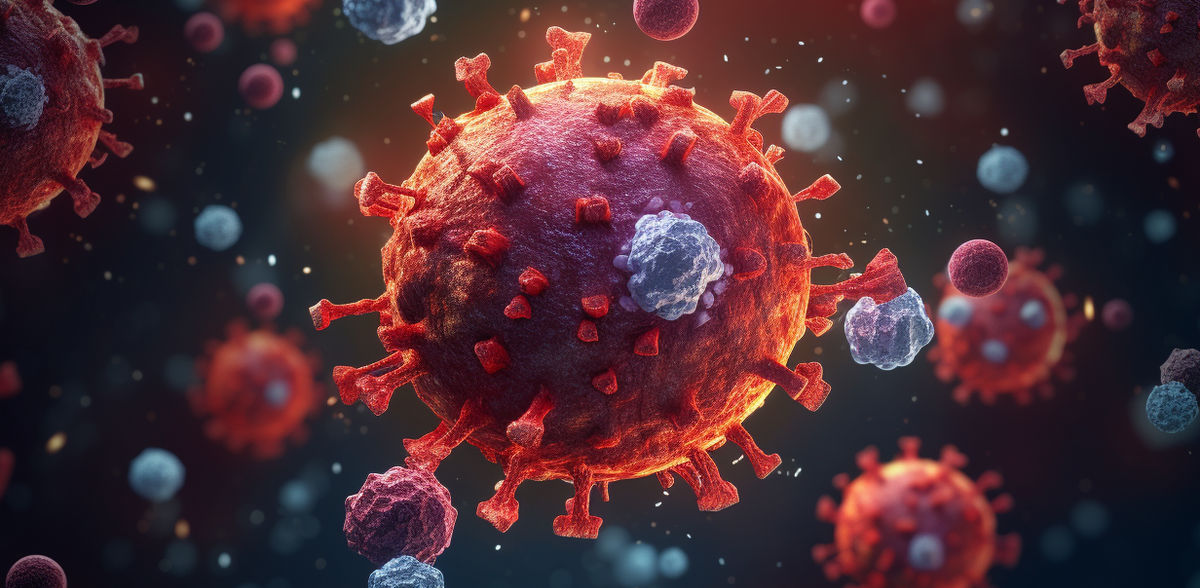Bacteria in saliva can induce protective antibodies against SARS-CoV-2
Important interaction between the oral microbiota and the immune system, especially in relation to vaccination
Advertisement
Scientists from the DRFZ have shown that a commensal bacteria found in saliva can regulate the immune response generated following vaccination against the SARS-CoV-2 virus. These findings were published in the journal Cell Host & Microbe and show the importance of the cross talk between the oral microbiota and immune responses, especially in relation to vaccination.
Occasionally, commensal bacteria found in the oral cavity of humans may appear to be very similar in structure to an infectious pathogen. This similarity means that antibodies produced against the commensal may also bind to the pathogen or vice versa – a process known as cross-reaction induced by molecular mimicry. Scientists from the DRFZ have discovered that exactly such a mechanism occurs between a commensal bacteria found in saliva, Streptococcus salivarius, and the Spike protein of the SARS-CoV-2 virus, resulting in a potential increase of protective immunity against the virus.
The researchers found that following vaccination against SARS-CoV-2, there was a simultaneous increase of the abundance of the commensal bacteria S. salivarius in the saliva in the study participants. Moreover, antibodies produced in the immune response to the vaccine were able to bind to several commensal bacteria, including S. salivarius, due to the similarity in structure of the bacteria and the virus. The researchers also went on to define the bacterial protein which had similarities to the SARS-CoV-2 virus and injected it into mice, resulting in production of neutralizing antibodies against the virus. These commensal cross-reactive antibodies enhanced clearance of the virus in mice, showing that the oral microbiota can influence the immune responses to the virus. Dr Andrey Kruglov, one of the senior authors of the study, commented that: “This research helps to shed light on how the composition of the oral microbiota may potentially regulate susceptibility to infection or severity of disease.”
As an oral supplement of S. salivarius is commercially available as a probiotic (known as BLIS K12), the researchers also examined the effect of taking this probiotic on the levels of anti-SARS-CoV-2 antibodies in saliva. Within two weeks of taking the probiotic, the researchers reported an increase in SARS-CoV-2 antibodies measured in the saliva in the majority of participants – an effect not seen in the control group (not taking the probiotic) and also not in unvaccinated participants. Interestingly, as antibody levels of people taking the probiotic were not altered in blood, this suggests that this effect is due to a specific local alteration in the mucosal immune response by the bacteria in the saliva, rather than a systemic effect seen throughout the entire immune system.
Although this study did not address whether S. salivarius influenced SARS-CoV-2 disease outcome, there is some evidence from other clinical trials that using the K12 probiotic supplement of S. salivarius may be beneficial. Dr Kruglov is hopeful: “This is another example of the importance of the crosstalk between the microbiota and the immune system – something we are only beginning to understand.”
Original publication
Other news from the department science
Most read news
More news from our other portals
See the theme worlds for related content
Topic world Antibodies
Antibodies are specialized molecules of our immune system that can specifically recognize and neutralize pathogens or foreign substances. Antibody research in biotech and pharma has recognized this natural defense potential and is working intensively to make it therapeutically useful. From monoclonal antibodies used against cancer or autoimmune diseases to antibody-drug conjugates that specifically transport drugs to disease cells - the possibilities are enormous

Topic world Antibodies
Antibodies are specialized molecules of our immune system that can specifically recognize and neutralize pathogens or foreign substances. Antibody research in biotech and pharma has recognized this natural defense potential and is working intensively to make it therapeutically useful. From monoclonal antibodies used against cancer or autoimmune diseases to antibody-drug conjugates that specifically transport drugs to disease cells - the possibilities are enormous





























































